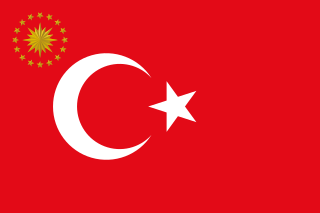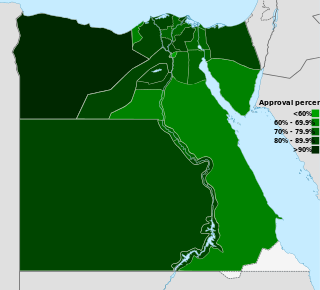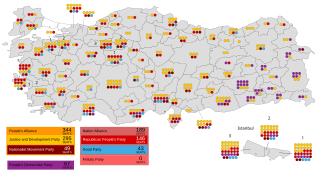
The politics of Armenia take place in the framework of the parliamentary representative democratic republic of Armenia, whereby the president of Armenia is the head of state and the prime minister of Armenia the head of government, and of a multi-party system. Executive power is exercised by the president and the Government. Legislative power is vested in both the Government and Parliament.

The politics of Kazakhstan takes place in the framework of a semi-presidential republic, whereby the President of Kazakhstan is head of state and nominates the head of government. Executive power is exercised by the government. Legislative power is vested in both the government and the two chambers of parliament.

The politics of Kyrgyzstan, officially known as the Kyrgyz Republic, takes place in the framework of a presidential system representative democratic republic, whereby the President is head of state and the Chairman of the Cabinet of Ministers is head of government. Executive power is exercised by the government. Legislative power is vested in both the government and parliament. The Economist Intelligence Unit rated Kyrgyzstan an "authoritarian regime" in 2022.

The politics of Turkey take place in the framework of a constitutional republic and presidential system, with various levels and branches of power.

The president of Turkey, officially the president of the Republic of Türkiye, is the head of state and head of government of Turkey. The president directs the executive branch of the national government and is the commander-in-chief of the Turkish military. The president also heads the National Security Council.

The Justice and Development Party, abbreviated officially as AK Party in English, is a political party in Turkey self-describing as conservative-democratic. Third-party sources often refer to the party as national conservative, social conservative and espousing neo-Ottomanism. The party is generally regarded as being right-wing on the political spectrum, although some sources have described it as far-right since 2011. It is one of the two major parties of contemporary Turkey along with the Republican People's Party (CHP).

The president of Pakistan is the head of state of the Islamic Republic of Pakistan. The president is the nominal head of the executive and the supreme commander of the Pakistan Armed Forces. Arif Alvi is the 13th and current president, in office since 9 September 2018.

The prime minister of Turkey, officially the prime minister of the Republic of Turkey, was the head of government of the Republic of Turkey from 1920 to 2018, who led a political coalition in the Turkish Parliament and presided over the cabinet. Throughout the political history of Turkey, functions and powers of the post have changed occasionally. Prior to its dissolution as a result of the 2017 Constitutional Referendum, the holder of the premiership was generally the dominant figure in Turkish politics, outweighing the president.

The Grand National Assembly of Turkey, usually referred to simply as the TBMM or Parliament, is the unicameral Turkish legislature. It is the sole body given the legislative prerogatives by the Turkish Constitution. It was founded in Ankara on 23 April 1920 amid the National Campaign. This constitution had founded its pre-government known as 1st Executive Ministers of Turkey in May 1920. The parliament was fundamental in the efforts of Mareşal Mustafa Kemal Atatürk, 1st President of the Republic of Turkey, and his colleagues to found a new state out of the remnants of the Ottoman Empire.

The Constitution of the Republic of Belarus is the ultimate law of Belarus. The Constitution is composed of a preamble and nine sections divided into 146 articles.

The judicial system of Turkey is defined by Articles 138 to 160 of the Constitution of Turkey.

The Government of Turkey is the national government of Turkey. It is governed as a unitary state under a presidential representative democracy and a constitutional republic within a pluriform multi-party system. The term government can mean either the collective set of institutions or specifically the Cabinet.

A constitutional referendum on a number of changes to the constitution was held in Turkey on 12 September 2010. The results showed the majority supported the constitutional amendments, with 58% in favour and 42% against. The changes were aimed at bringing the constitution into compliance with European Union standards. Supporters of Turkish EU membership hope constitutional reform will facilitate the membership process.

A constitutional referendum was held in Egypt on 19 March 2011, following the 2011 Egyptian revolution. More than 14 million (77%) were in favour, while around 4 million (23%) opposed the changes; 41% of 45 million eligible voters turned out to vote.
The Council of Judges and Prosecutors, HSK; previously named as Supreme Board of Judges and Prosecutors is the disciplinary body of the legal system of the Republic of Turkey and the national council of the judiciary of Turkey. It was established under the 1982 Constitution of Turkey and significantly amended by the Turkish constitutional referendum, 2010. After 2017 constitutional referendum, members are reduced to 13.

General elections were held in Turkey on 24 June 2018. Presidential elections were held to elect the President of Turkey using a two-round system. Parliamentary elections took place to elect 600 Members of Parliament to the Grand National Assembly of Turkey.

A constitutional referendum was held in Turkey on 16 April 2017 on whether to approve 18 proposed amendments to the Turkish constitution that were brought forward by the governing Justice and Development Party (AKP) and the Nationalist Movement Party (MHP). As a result of its approval, the office of Prime Minister was abolished and the existing parliamentary system of government was replaced with an executive presidency and a presidential system. The number of seats in Parliament was raised from 550 to 600, while, among a series of other proposals, the president was given more control over appointments to the Supreme Board of Judges and Prosecutors (HSYK). The referendum was held under a state of emergency that was declared following a failed military coup attempt in July 2016.
The 2017 Turkish constitutional referendum 'No' campaign refers to a collection of unsuccessful political campaigns led by political parties, organizations and media outlets in favour of a 'No' vote in the 2017 Turkish constitutional referendum. Were the campaign to have been successful, it would have resulted in Turkey remaining a parliamentary republic as opposed to an executive presidency, which it became as a result of the referendum, and would have constituted the first direct upset against the governing Justice and Development Party (AKP) since they took office in 2002.

Presidential elections were held in Turkey on 24 June 2018 as part of the 2018 general election, alongside parliamentary elections on the same day. They were the first presidential elections held after constitutional amendments were approved in a 2017 referendum.

The vice president of Turkey, officially the vice president of the Republic of Türkiye, is the second-highest officer in the executive branch of the government of Turkey, after the president. The vice president is also a statutory member of the Cabinet, National Security Council and Supreme Military Council.



















